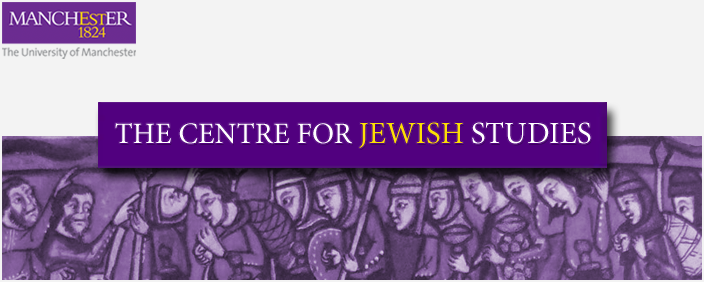7. Weizmann's Arrival and the Manchester School of Zionism
 As we have seen, the foundations for the reputation Manchester was to achieve as ‘the cradle of Zionism’ had been firmly established by the time a young chemist called Chaim Weizmann arrived in 1904 (the same year that Herzl died) in search of employment. Joseph Massel met Weizmann at the train station and, together with Charles Dreyfus, befriended him well before it was apparent that Weizmann would go on to transform the Manchester Zionist infrastructure into the centre of the world Zionist movement. After all, at this time the young Eastern European immigrant knew no English, had few contacts, and possessed neither a job nor any money.
As we have seen, the foundations for the reputation Manchester was to achieve as ‘the cradle of Zionism’ had been firmly established by the time a young chemist called Chaim Weizmann arrived in 1904 (the same year that Herzl died) in search of employment. Joseph Massel met Weizmann at the train station and, together with Charles Dreyfus, befriended him well before it was apparent that Weizmann would go on to transform the Manchester Zionist infrastructure into the centre of the world Zionist movement. After all, at this time the young Eastern European immigrant knew no English, had few contacts, and possessed neither a job nor any money.
 Front page of first edition of the Zionist bannerWithin a year or so, Weizmann was working as a chemistry demonstrator at the University of Manchester and as a researcher at Dreyfus’ Clayton Analine chemical factory. Massel and Dreyfus had introduced him into the Zionist circles, and he had developed a good rapport with the large number of fellow East European immigrants whom he described later as "simple, hard-working folk, full of zeal." It was not long before he was accepted as their leader and gained a reputation for his inspirational and intellectual authority. In 1906 the pogroms that had followed the liquidation of the first Russian Revolution shocked the Anglo-Jewish community, and Weizmann used the opportunity for re-energising the MZA, whose activities he described rather disparagingly as "limited to the usual clichés and clap-trap performances."
Front page of first edition of the Zionist bannerWithin a year or so, Weizmann was working as a chemistry demonstrator at the University of Manchester and as a researcher at Dreyfus’ Clayton Analine chemical factory. Massel and Dreyfus had introduced him into the Zionist circles, and he had developed a good rapport with the large number of fellow East European immigrants whom he described later as "simple, hard-working folk, full of zeal." It was not long before he was accepted as their leader and gained a reputation for his inspirational and intellectual authority. In 1906 the pogroms that had followed the liquidation of the first Russian Revolution shocked the Anglo-Jewish community, and Weizmann used the opportunity for re-energising the MZA, whose activities he described rather disparagingly as "limited to the usual clichés and clap-trap performances."
One of Weizmann’s gifts was his ability to utilise the skills and energy of his fellow Zionists to best effect, and he drew around him a loose confederate of friends and associates, creating what eventually became known as ‘the Manchester School of Zionism.’ These included the businessmen Israel Sieff and Simon Marks (of Marks and Spencer fame), who proved themselves many times over with regard to influential contacts, fundraising, and advice. It also included the journalists Harry Sacher, Leon Simon, Samuel Landman, Harry Dagut (son of Rabbi Dagutski) and Symon Massel (son of Joseph); among other propaganda activities, these men published the monthly Zionist Banner from March 1910, one of the first Zionist periodicals in England.
Terms of Weizmann's initial employment at Victoria University
__________________________
IMAGE AND DOCUMENT CREDITS: Chaim and Vera Weizmann (J Reinharz, The Making of a Zionist Leader), Zionist Banner (© Manchester Jewish Museum), Terms of Weizmann's employment (John Rylands Library, © The Guardian), 57 Birchfield Road (Patricia Cummings) Full reference: Sources.



